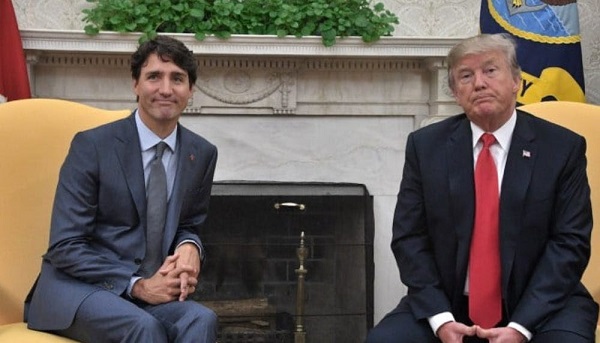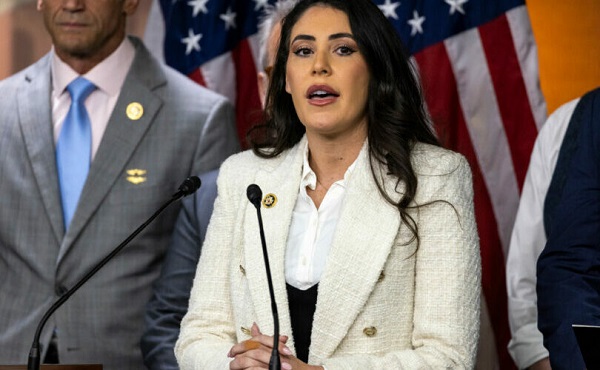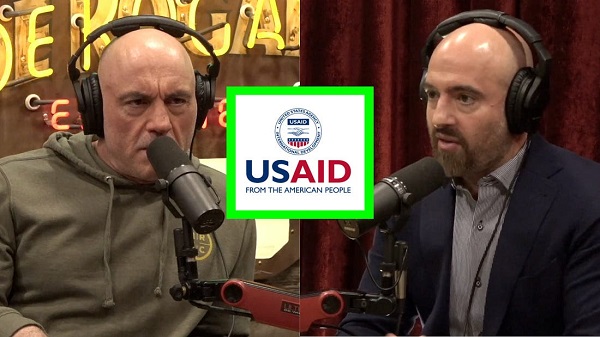Opinion
The federal government wants Canadians to eat bugs.
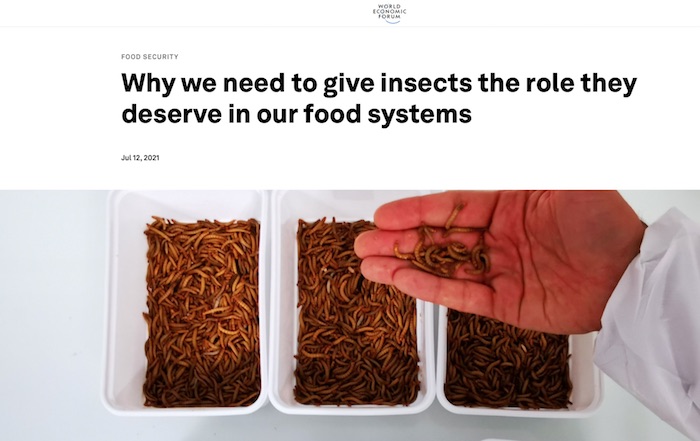
A few (very few) media outlets have picked up on this recent news release from the Canadian Taxpayers Federation regarding the human consumption of.. Bugs!
Yuck right? Well don’t panic. They’re not quite ready to swap your bowl of Count Chocula for cocoa-flavoured crickets just yet. However it does appear the Liberal government is hoping to put bugs on your menu. The article from the CTF is included below so I urge you to read on because it’s really interesting (and for those with a queasy stomach, just a tad disturbing).
But before you do that, a couple of observations.
First. This is NOT another win for the annoying conspiracy theory people. Sure they may have been spouting off about forcing us to eat bugs, but that doesn’t make this a classic conspiracy theory.
When it comes to conspiracy theories, most of us have always concluded there are just two types of people. There are the KOOKS. And then there are the people who do their best to avoid the kooks. Let’s call the first group the Flat Earthers, and the second group, Everyone Else (or the Rest of Us if you please).
Flat Earthers use evidence no one can verify to draw ridiculous conclusions and make strange accusations. Governments insisting we eat bugs may sound like a ridiculous conclusion formed by evidence no one can verify, but it turns out this is not the case at all.
Why is it that “The Liberal Government Wants Us To Eat Bugs” is not a ‘classic’ conspiracy theory?
Well it’s because of the words ‘conspiracy’ and ‘theory’. They just don’t apply.
The Oxford Dictionary defines conspiracy as “a secret plan by a group of people to do something harmful or illegal.” For one thing there’s nothing illegal about adding bugs to our diet. We’ve never had to make a law about it. Politicians like getting elected, and so it never occurred to them to force bugs onto our plates. Sure you’ll see them flipping pancakes and picking hot dogs off a bbq, but that’s about as ‘harmful’ as they’re willing to get. So there’s nothing illegal and nothing harmful going on. That leaves the part about being a secret.
To prove this isn’t a secret I’m afraid I’m going to have to put 2 and 2 together because we have to talk about the World Economic Forum. They might not be shouting it from the mountaintops, but the World Economic Forum isn’t hiding the fact they’d like us to replace meat protein with bugs. It’s only a secret if you’ve never taken the time to read “Why we need to give insects the role they deserve in our food systems“, or “5 reasons why eating insects could reduce climate change“.
You might think our trusted sources of information would look into this because food is something their readers tend to eat almost every day. Sometimes more than once. They might not even have to go to Davos to check it out. News reporters bump into Deputy PM Chrystia Freeland in the hallways on Parliament Hill all the time. Chrystia Freeland is on the World Economic Forum Board of Trustees If you click the link you can see her there, third person down on the right. If Deputy PM Freeland doesn’t know where to find these articles on the WEF website, as a Board of Trustee member she’ll know who to ask. So this certainly isn’t illegal or particularly harmful, and it’s only a secret to those who don’t read these things or have these things read to them by the information sources we’ve always trusted. The Liberal government might not talk about sharing goals with the WEF every day, but when Canada’s Deputy PM is on the WEF’s Board of Trustees let’s just say it would be odd to think they’re at odds.
The other word in play here is “theory”. When it comes to “conspiracy theory”, the word theory means “theoretical”, as in a theory, but not really happening. Again with the Oxford, second meaning applies here, “that could possibly exist, happen or be true, although this is unlikely”.
One could make a weak argument that Canada’s Deputy PM only goes to Davos to exchange stories with the rich and famous about how ridiculously hard it is to drive the speed limit in Alberta. One ‘theory’ is that she had to make it all the way back to Ottawa in an EV before it got cold. Regardless. Canada’s Deputy PM is a member of the WEF Board of Trustees. So although it could be a coincidence, it is not a theory that the federal government is funding bug – food research. As you’ll see below, the liberals are paying companies to ” promote the consumption of “roasted crickets” or “cricket powder” mixed-in with your morning bowl of cereal. ”
The fact the WEF has been talking about this for years now, the fact our Deputy Prime Minister is on the WEF Board of Trustees, and the fact the federal government is now funding research meant to change Canadians from people who stomp on bugs into people who chomp on bugs.. Well that pretty much takes the theoretical part right out of it.
Now that you’re hungry for more, here is the news release from a new trusted information source, the CTF.
By Ryan Thorpe of the Canadian Taxpayers Federation
Taste the crunch: cricket corporate welfare cost $420K

Bon apétit.
The federal government spent $420,023 since 2018 subsidizing companies that turn crickets into human food.
“Canadians are struggling as inflation pushes up grocery bills, but subsidizing snacks made out of bugs doesn’t sound like the right solution for taxpayers,” said Franco Terrazzano, CTF Federal Director. “If Prime Minister Justin Trudeau wants to take a bite out of crunchy crickets, he can do it without taking a bite out of taxpayers’ wallets.”
The Canadian Taxpayers Federation gathered the list of cricket corporate welfare deals by reviewing the federal government’s proactive disclosure of grants and contributions.
On two separate occasions, the feds cut cheques to a Montreal-based company called NAAK Inc., for a combined cost to taxpayers of $171,695.
The co-founders of NAAK were “introduced … to the benefits of adding insects to (their) diet” by a friend and describe their mission as “democratizing insect consumption.”
NAAK specializes in “cricket energy bars,” but a portion of its corporate welfare money was earmarked for developing other cricket products, including “steaks, sausages and falafels.”
NAAK is one of five companies producing crickets for human consumption that have received corporate welfare deals from the feds in recent years.
Table: Corporate welfare deals, 2018-2022
|
Company |
Number of subsidies |
Total cost of subsidies |
|
NAAK Inc. |
2 |
$171,695 |
|
Entologik Inc. |
2 |
$88,979 |
|
Prairie Cricket Farms |
2 |
$78,349 |
|
Gaia Protein |
1 |
$42,000 |
|
Casa Bonita Foods |
1 |
$39,000 |
Casa Bonita Foods wants to “manufacture high protein snacks made with cricket flour,” while Prairie Cricket Farms promotes the consumption of “roasted crickets” or “cricket powder” mixed-in with your morning bowl of cereal.
The founder of Entologik claims insects are the “protein of the future” and wants to grow the company into “the largest producers and processor of edible insects in Canada.”
“The feds are having their ‘let them eat crickets’ moment,” Terrazzano said. “If someone can sell crickets as food, we wish them the best of luck, but taxpayers shouldn’t be paying for it.”
An additional $8.7 million in subsidies went to Aspire Food Group, which operates a cricket processing plant in London, Ont. In total, the company received four separate handouts.
While the company is primarily geared toward pet food production, its owner said about 10 per cent of its business uses crickets for human food.
Business
DOJ drops Biden-era discrimination lawsuit against Elon Musk’s SpaceX
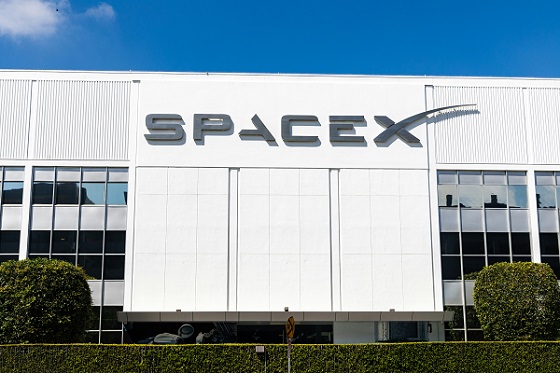
 MxM News
MxM News
Quick Hit:
The Justice Department has withdrawn a discrimination lawsuit against Elon Musk’s SpaceX that was filed during the Biden administration. The lawsuit accused SpaceX of discriminatory hiring practices against asylum seekers and refugees. The move follows ongoing cost-cutting measures led by Musk as the head of the Department of Government Efficiency under the 47th President Donald Trump’s administration.
Key Details:
-
The DOJ filed an unopposed motion in Texas federal court to lift a stay on the case, signaling its intent to formally dismiss the lawsuit.
-
The lawsuit, filed in 2023, alleged SpaceX required job applicants to be U.S. citizens or permanent residents, a restriction prosecutors argued was unlawful for many positions.
-
Elon Musk criticized the lawsuit as politically motivated, asserting that SpaceX was advised hiring non-permanent residents would violate international arms trafficking laws.
Diving Deeper:
The Justice Department, led by Attorney General Pam Bondi, has moved to drop the discrimination lawsuit against SpaceX, marking another reversal of Biden-era legal actions. The case, initiated in 2023, accused SpaceX of discriminating against asylum seekers and refugees by requiring job applicants to be U.S. citizens or permanent residents. Prosecutors claimed the hiring policy unlawfully discouraged qualified candidates from applying.
The DOJ’s decision to withdraw the case follows a judge’s earlier skepticism about the department’s authority to pursue the claims. No official reason for the withdrawal was provided, and neither Musk, SpaceX, nor the DOJ have issued public statements on the development.
Elon Musk was outspoken in his criticism of the lawsuit, labeling it as a politically motivated attack. Musk argued that SpaceX was repeatedly informed that hiring non-permanent residents would violate international arms trafficking laws, exposing the company to potential criminal penalties. He accused the Biden-era DOJ of weaponizing the case for political purposes.
The decision to drop the lawsuit coincides with Musk’s growing influence within the Trump administration, where he leads the Department of Government Efficiency (DOGE). Under his leadership, DOGE has implemented aggressive cost-cutting measures across federal agencies, including agencies that previously investigated SpaceX. The Federal Aviation Administration (FAA), which proposed fining SpaceX $633,000 for license violations in 2023, is currently under review by DOGE officials embedded within the agency.
Meanwhile, SpaceX’s regulatory challenges appear to be easing. A Texas-based environmental group recently dropped a separate lawsuit accusing the company of water pollution at its launch site near Brownsville. The withdrawal of the DOJ lawsuit signals a significant victory for Musk as he continues to navigate regulatory scrutiny while advancing his business ventures under the Trump administration.
Business
PepsiCo joins growing list of companies tweaking DEI policies

 MxM News
MxM News
Quick Hit:
PepsiCo is the latest major U.S. company to adjust its diversity, equity, and inclusion (DEI) policies as 47th President Donald Trump continues his campaign to end DEI practices across the federal government and private sector. The company is shifting away from workforce representation goals and repurposing its DEI leadership, signaling a broader trend among American corporations.
Key Details:
-
PepsiCo will end DEI workforce representation goals and transition its chief DEI officer to focus on associate engagement and leadership development.
-
The company is introducing a new “Inclusion for Growth” strategy as its five-year DEI plan concludes.
-
PepsiCo joins other corporations, including Target and Alphabet-owned Google, in reconsidering DEI policies following Trump’s call to end “illegal DEI discrimination and preferences.”
Diving Deeper:
PepsiCo has announced significant changes to its DEI initiatives, aligning with a growing movement among U.S. companies to revisit diversity policies amid political pressure. According to an internal memo, the snacks and beverages giant will no longer pursue DEI workforce representation goals. Instead, its chief DEI officer will transition to a broader role that focuses on associate engagement and leadership development. This shift is part of PepsiCo’s new “Inclusion for Growth” strategy, set to replace its expiring five-year DEI plan.
The company’s decision to reevaluate its DEI policies comes as President Donald Trump continues his push against DEI practices, urging private companies to eliminate what he calls “illegal DEI discrimination and preferences.” Trump has also directed federal agencies to terminate DEI programs and has warned that academic institutions could face federal funding cuts if they continue with such policies.
PepsiCo is not alone in its reassessment. Other major corporations, including Target and Google, have also modified or are considering changes to their DEI programs. This trend reflects a broader corporate response to the evolving political landscape surrounding DEI initiatives.
Additionally, PepsiCo is expanding its supplier base by broadening opportunities for all small businesses to participate, regardless of demographic categories. The company will also discontinue participation in single demographic category surveys, further signaling its shift in approach to DEI.
As companies like PepsiCo navigate these changes, the debate over the future of DEI in corporate America continues. With Trump leading a campaign against these practices, more companies may follow suit in reevaluating their DEI strategies.
-
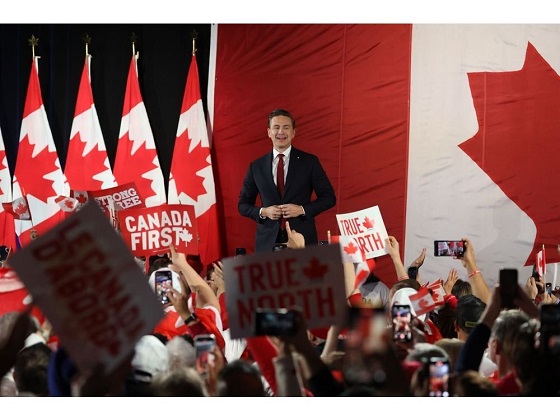
 Bruce Dowbiggin2 days ago
Bruce Dowbiggin2 days agoWith Carney On Horizon This Is No Time For Poilievre To Soften His Message
-
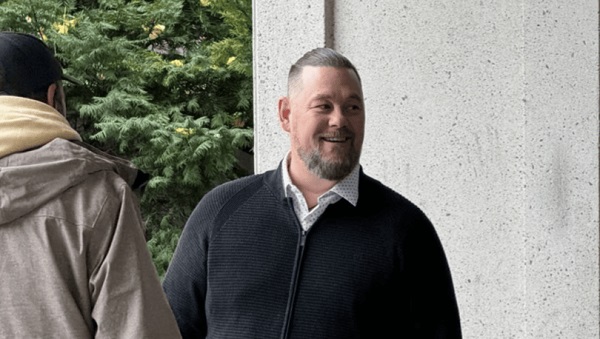
 COVID-192 days ago
COVID-192 days agoRed Deer Freedom Convoy protestor Pat King given 3 months of house arrest
-

 Media2 days ago
Media2 days agoMatt Walsh: CBS pushes dangerous free speech narrative, suggests it led to the Holocaust
-
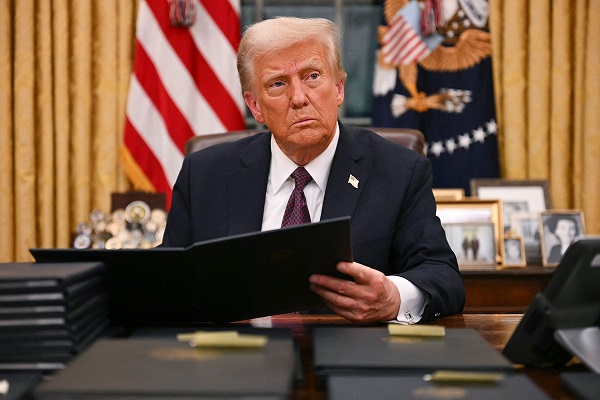
 illegal immigration2 days ago
illegal immigration2 days agoTrump signs executive order cutting off taxpayer-funded benefits for illegal aliens
-

 Censorship Industrial Complex1 day ago
Censorship Industrial Complex1 day agoBipartisan US Coalition Finally Tells Europe, and the FBI, to Shove It
-
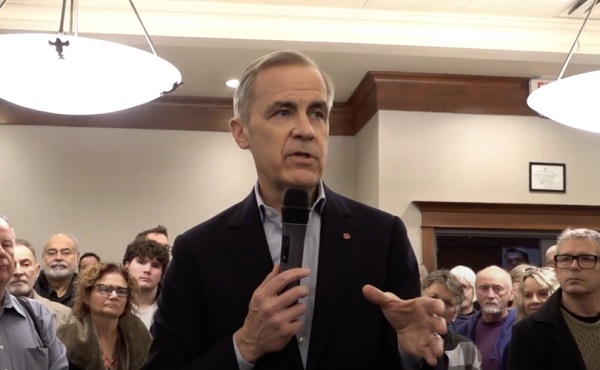
 Carbon Tax1 day ago
Carbon Tax1 day agoMark Carney has history of supporting CBDCs, endorsed Freedom Convoy crackdown
-

 International2 days ago
International2 days agoSenate votes to confirm Kash Patel as Trump’s FBI director
-
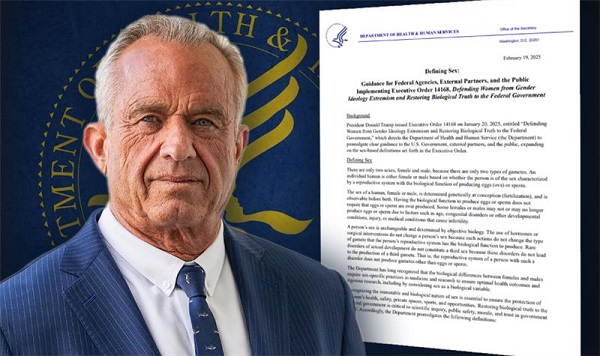
 Health1 day ago
Health1 day agoTrump HHS officially declares only two sexes: ‘Back to science and common sense’


